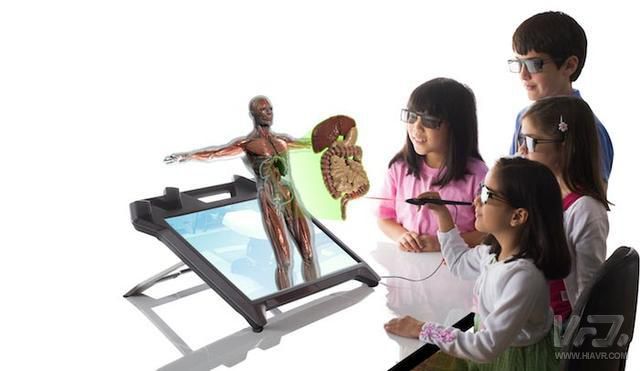VR training immersive teaching makes talent training no longer a problem
The growth of the VR industry is closely tied to the availability of skilled professionals. As virtual reality becomes more deeply integrated into various sectors, the demand for qualified VR talent has become increasingly apparent. More and more industries are now leveraging VR-based training to improve efficiency and effectiveness. Real estate, automotive, education, sales teams, and even teachers are using virtual reality to train faster and with greater engagement.
Since VR technology entered the market last year and started gaining momentum, it has attracted growing attention from both consumers and businesses. Today, VR is making its way into nearly every sector, bringing fresh innovation and enhancing productivity across the board. Its impact is becoming more visible and significant.

VR and AR are seen as one of the most promising industries of the future. Since their emergence, they have been advancing rapidly, expanding their market presence, and attracting major tech companies. Giants like Facebook, Google, Microsoft, Apple, and Tencent have all made significant investments in VR/AR, while entrepreneurs are also pouring resources into this high-growth field, often referred to as a trillion-dollar opportunity. With the market continuously expanding, VR/AR technicians have become essential players driving the industry forward.
According to ABI Research, as VR headsets, controllers, motion tracking systems, and related software continue to evolve, the enterprise VR training market is expected to grow significantly. The research firm predicts that the market will experience a compound annual growth rate of 140% over the next five years, reaching $6.3 billion in revenue.
In 2015, China launched its "Innovation-Driven Strategy," which helped accelerate the adoption of technologies like the Internet Plus and artificial intelligence. In this environment, VR emerged as one of the hottest new technologies globally, naturally becoming a key player in the innovation landscape. It has received widespread support from governments, investors, and industry leaders alike.
However, despite the rapid development of hardware, the shortage of skilled VR professionals has become a major obstacle to further growth. While the Chinese VR market is expected to see a major expansion, current VR education remains underdeveloped. Only a few institutions offer VR-related courses, creating a serious mismatch between market demand and available talent.
At the preparatory meeting for the World VR Industry Conference on November 23rd, Luo Wen, Deputy Minister of Industry and Information Technology, emphasized the importance of developing the VR industry to meet people’s growing needs, promote manufacturing excellence, and support the transition toward an innovative, high-quality economy. He highlighted how VR can drive supply-side reforms, create new growth areas, and generate new momentum.
Today, we're witnessing similar technological shifts that are reshaping industries and job markets. Many traditional roles are being challenged, but at the same time, new opportunities are emerging through the use of advanced technologies. The real challenge lies not just in the lack of jobs, but in the mismatch between workers' skills and what the market demands. This issue is evident not only in high-tech fields but also in traditional industries, where many positions remain unfilled.
By offering immersive training environments, simulating dangerous scenarios, and reducing costs associated with travel and equipment, companies are increasingly turning to VR for employee development. For organizations, VR training is proving to be an effective and cost-efficient solution.
Choosing professional training programs helps students gain practical skills quickly, preparing them for the IT industry and reducing workplace stress. Although training involves some initial investment, the long-term benefits—such as improved efficiency, reduced effort, and better career outcomes—make it a worthwhile choice.
VR is often viewed as the next stage of the "Internet Plus" movement. As it continues to integrate into all aspects of life, it's set to drive a new wave of innovation. Education is no exception. Though VR training is still in its early stages, its potential in corporate training is vast. From tourism and sales to sports training, the applications of VR are expected to expand even further in the coming years.
ac dc adapter,dc adapter,ac adapter 12v,dc power adapter,ac dc adapter 24v
FOSHAN SHUNDE KELICHENG POWER SUPPLY TECHNOLOGY CO., LTD , https://www.kelicpower.com